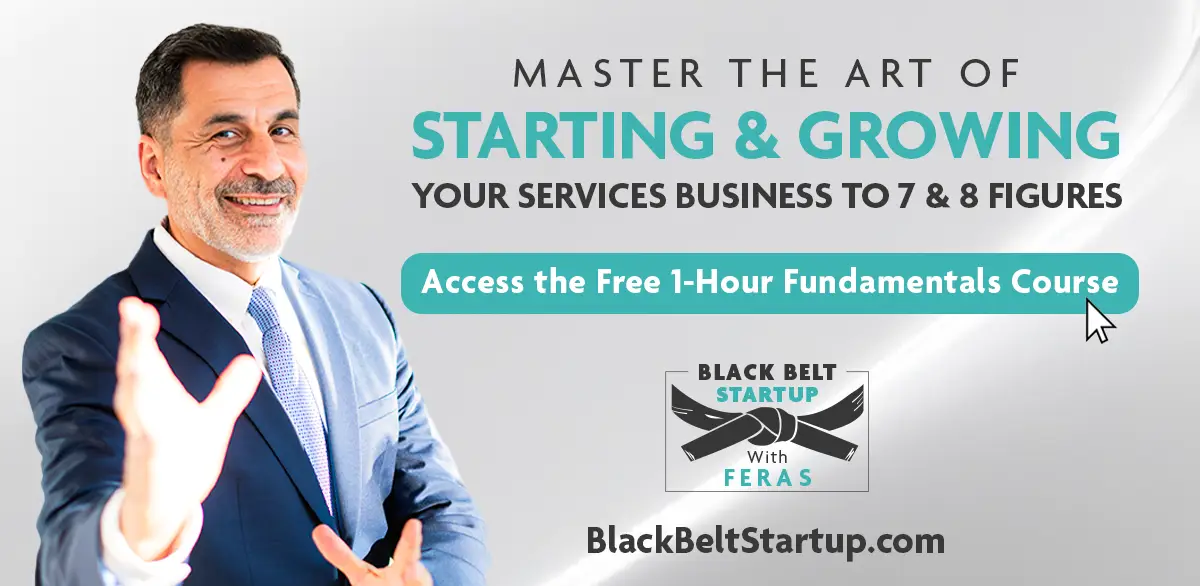4 Signs of a Good Business Idea

“The best businesses come from people’s bad personal experiences. If you just keep your eyes open, you’re going to find something that frustrates you, and then you think, ‘Well, I could maybe do it better than it’s being done,’ and there you have a business.”
— Sir Richard Branson
Fortune Telling & Business
People ask me all the time, “Feras, is this a good idea?” Without having sufficient information or context, my answer is always, “I don’t know.” Because I can’t know.
A friend of mine watched the very first TV episode of Power Rangers with his nephew and thought, “The acting and production value is terrible. This won’t last long.” That was nearly 30 years ago, and the franchise is still wildly successful.
I’ve thought the same about many products and services – there’s no way they could find a market – but they became successful, despite my assessment. I won’t be starting my fortune telling service anytime soon.
The truth is, you can’t know for sure whether a business idea will be successful, but there are four key areas that can indicate if your business idea has a good chance of success.
1. Your Business Idea Solves a Problem and/or Serves an Unaddressed (or Unidentified) Need
Think of consumer or business needs that are not adequately met. Products by companies like Gopro or Apple offered features you didn’t think you needed until they were available. As an example, Nick Woodman, GoPro’s founder, was frustrated by not being able to take high-quality action photos of his Australian surfing trip.
And during the COVID19 pandemic, intuitive businesses offered curbside pickup and delivery services. These helped them stay solvent and sometimes increased their business.
2. Your Business Idea Is Part of a Larger Ecosystem
Business ecosystems are like natural, biological ecosystems. In the latter, various species of plants and animals depend on each other for survival.
Your business idea might help fill a part in a growing ecosystem. As an example, Oracle created their Netsuite product for business implementation. Some businesses had their own IT departments that could plan, implement, and maintain this powerful framework, but many did not. An ecosystem of IT service companies developed to create custom solutions for small-to-midsize businesses.
Or look at platforms like YouTube and TikTok. At first, they were a fun, content-filled playground. But soon an ecosystem of creators, teachers, and video creation services blossomed to support thriving businesses within these larger ecosystems. My own channel depends on production and post-production professionals.
3. The Business Takes Advantage of an Un-optimized Opportunity
Have you ever been frustrated by a system or product that doesn’t quite meet your needs? Serial entrepreneur Jay Samit was.
He developed a prototype of a fully automated lottery ticket kiosk. He intended to sell it to the California State Lottery. They turned him down.
Riding home that night, he noticed that all the train station information booths were closed despite a number of night travelers, many of whom were tourists. He saw a new unoptimized opportunity for his automated kiosk idea, providing 24-7 information for travelers. The state transportation department loved it and a new business was born.
So if your idea solves a product, service or situation that frustrates you, you’re probably not alone.
4. The Idea Can Ride a Trend or Market “Wave”
There are groundbreaking moments where innovations happen in various fields. These innovations can be technological (Internet browsers in the early ’00s, mobile data in the ’10s, or NFTs in 2021), environmental, health (the COVID-19 pandemic), or regulatory and industry-specific (e.g. consumer protection laws). In each of these areas, there are oodles of opportunities to pivot and start or grow a consulting idea.
Like in surfing, timing the wave can be tricky. That doesn’t mean pause your idea, because sometimes the idea is viable and then bolstered by an unseen trend wave. Other times, it’s an idea before its time like the Rio MP3 player. The product was solid, but it lacked a support system that made music file transfers easy, a problem Apple solved beautifully a short time later.
Key Takeaways
Talk to others in the space you’re exploring. Call would-be competitors, talk to people in your intended audience, bend the ear of a mentor or an industry expert. See if your idea has merit… would they buy it?
In the future, I’ll show you how to test your idea for no/or little investment.




